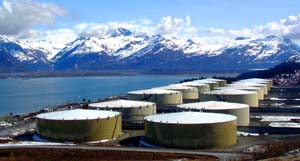The council recently partnered with the University of Alaska Fairbanks’ Oral History Program to create an online oral history of the Exxon Valdez oil spill. Through the University’s Project Jukebox website, visitors can access video, audio, and written resources that offer a rich understanding of the 1989 Exxon Valdez oil spill.
The personal stories of twenty people who experienced the spill firsthand are highlighted in the project. Each person talks about the impact the spill had on their life and the environment, the cleanup response, the long-term effects of the spill, and changes in the oil industry since 1989. Twenty-five years after the Exxon Valdez oil spill, Project Jukebox is helping preserve this piece of history. Many of these stories are being told for the first time. The experiences documented on the Project Jukebox site are now accessible to the public.


 Although the immediate cause of the spill was a navigational error on the part of the tanker’s captain and crew, complacency among the oil industry, regulatory agencies, and the public was found to play a part in the disaster.
Although the immediate cause of the spill was a navigational error on the part of the tanker’s captain and crew, complacency among the oil industry, regulatory agencies, and the public was found to play a part in the disaster.